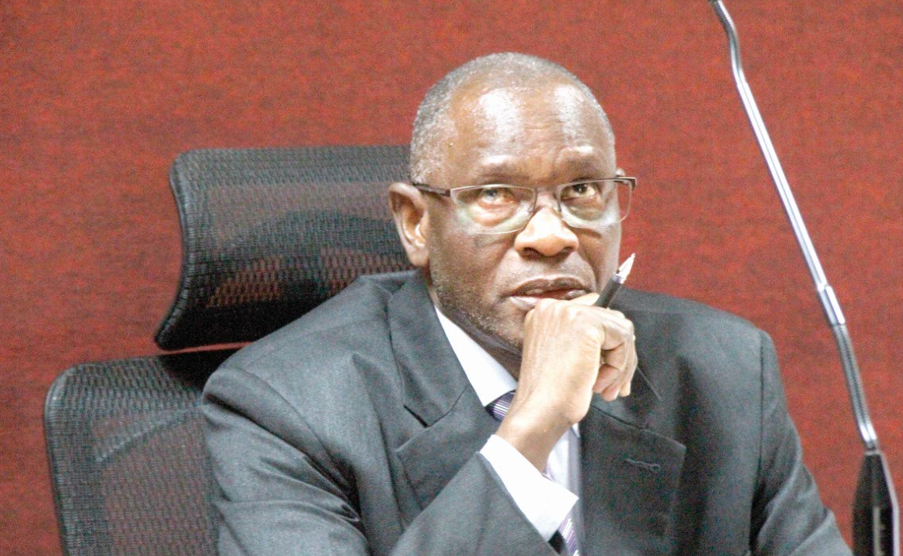Court puts Health Act operation on hold for 2 months

The government suffered a major setback yesterday after a judge suspended further implementation of the Social Health Insurance Act, 2023 as introduced by the Ministry of Health until February 2024.
In a brief ruling, Justice Chacha Mwita of the Milimani High Court temporarily stopped the State from enforcing three new funds gazetted by Health Cabinet Secretary Susan Nakhumicha pending determination of a case lodged in court by activist Joseph Enock.
“A conservatory order is hereby issued restraining the respondents (President William Ruto, CSs in the Ministry of Health and Information, the Attorney General, Commission for Revenue collection, The National Assembly and the Senate), their agents and or anyone acting on their directives from implementing and or enforcing The social Health Insurance Act, 2023; The Primary Health Care Act, 2023 and The Digital Health Act, 2023 until February 7, 2024,” the judge ordered.
He granted the President, Nakhumicha, the AG, the National Assembly, the Senate, Council of Governors, Social Health Authority and among other respondents sued in the case seven days to file their responses.
The orders came days after the Act, which repeals the National Health Insurance Fund (NHIF) and establishes three new funds, came into effect on Wednesday, November 22.
The three new funds, which were introduced by the government, include the Primary Healthcare Fund, Social Health Insurance Fund and Chronic Illness and Emergency Fund.
While seeking the orders, Enock through lawyer Harrison Kinyanjui told the judge that the Social Health Insurance Act 2023 is unconstitutional since the Executive usurped the role of the Parliament when enacting the new law. He argues that there was no proper public participation before the said acts law was enacted.
“In violation of Article 7(1) of the Constitution of Kenya, none of the purported “public participation” engagements by either National Assembly or the Senate were conducted or executed in the Kiswahili language in respect of the Social Health Insurance Fund Act, 2023, or the Digital Health Act, 2023, or the Primary Health Care Act, 2023. The said Acts are to the said extent null and void,” lawyer Kinyanjui told the Judge.
New funds
He said although Section 2 of the Social Health Insurance Fund Act, 2023 defines “Funds” as constitutive of three distinct Funds namely “…the Primary Healthcare Fund established under Section 20, the Social Health Insurance Fund established under Section 25 and the Emergency, Chronic and Critical Illness Fund established under Section 28”, the Social Health Authority created under Section Four of the said Act does not confer power on the said Authority to administer each and every one of these Funds.
The lawyer told the court under Section 6(b) and (c) of the said Social Health Insurance Fund Act, 2023, again there is a clear breach of Article 201(e) of the Constitution.
“Section 6(b) and (c) of the said Social Health Insurance Fund Act, 2023 merely speaks of an undefined and amorphous “fund”. In regard thereto, there was no report availed by the Commission on Revenue Allocation to the Public pursuant to Article 205(1) of the Constitution of Kenya for consideration under Article 205(2) of the Constitution of Kenya before the voting on the said Social Health Insurance Fund Bill, 2023,” Kinyanjui stated.
Consequently, the court heard the exclusion of the originally framed Section 38 of the Social Health Insurance Fund Bill, 2023 from the final Social Health Insurance Fund Act, 2023 constitutes a violation of Article 206 of Constitution which demands that all money raised and or received by an entity on behalf of the National Government be paid into the Consolidated Fund, with the necessary provision which in this instance was breached.
Equally, while the Digital Health Act, 2023 is also disguised as furthering Universal Health Care in Kenya which the petitioner argues is not the case.
According to the Enock on September 14 the National Assembly irrationally and unconstitutionally allowed debate period The Social Health Insurance (National Assembly Bill No. 58 of 2023, consideration period to be truncated from the regular fourteen days to afford the Members of National Assembly time to scrutinise and read for themselves the said Bill to a mere three days in a manner that clearly violated Article 118(1)(b) of the Constitution which provision mandates public participation of the people of Kenya, and their involvement in the process of making legislation.
Foreign entities
“Unconstitutional abdication by Kenya’s Parliament of the Constitutionally- entrenched Legislative Mandate in enacting the Social Health Insurance Fund Act, 2023, Primary Health Care Act, 2023 and the Digital Health Care Act, 2023 and lack of any, and/or any meaningful Public Participation in the enactment thereof renders the said Statutes unconstitutional,” he states
Further, Enock contends that in order for the state to the achieve these diabolical ends, National Assembly of Kenya and the Senate deliberately and knowingly concealed from Kenyans the dire consequences of the Social Health Insurance Fund Act, 2023, which legislation was enacted in unprecedented haste to appease foreign entities pushing for the enactment of the said legislation.
He adds that Section 8(2) of the Primary Health Care Act, 2023 purports to further implant and entrench the Communist State surveillance in directing County Governments in mandatory to take all necessary measures to build the capacity of community health promoters for the proper and efficient implementation of this Act, which is altogether outside the National Government’s health mandate, and a breach of Schedule Four of the Constitution.
“Indeed, under the guise of “healthcare”, the Executive of Kenya that has been taken captive by Colonial forces and in violation of the County Governments Act which establishes the Administrative units thereunder, seeks to entrench the Communist Rule at the County level as detailed in Section 20 of the Primary Health Care, 2023,” reads the court papers.








